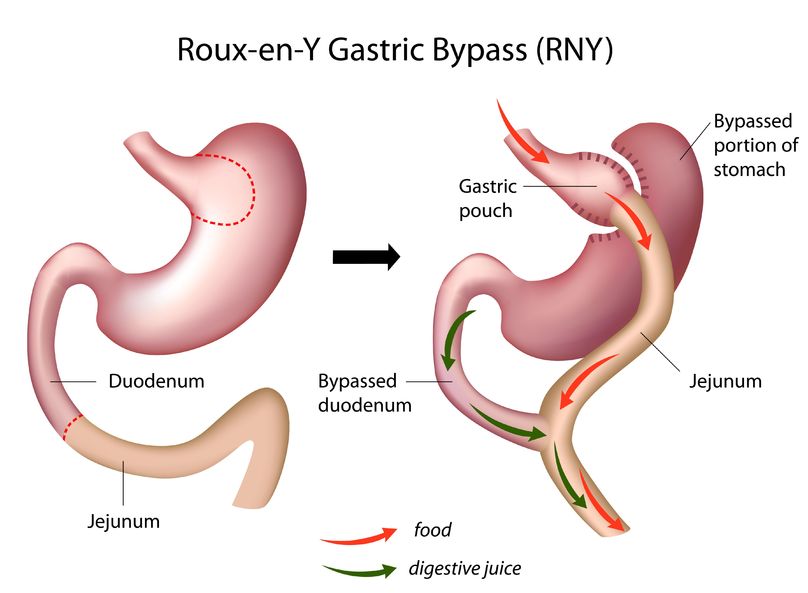
Bypass surgery is a procedure that is done to alter how the body normally works. The bypass is usually done to cure an existing health problem. With the increase of health consciousness in our society, bariatric bypass surgery is becoming a preferred option for dealing with obesity. Performed by a licensed bariatric bypass surgeon, this procedure alters how the body digests and absorbs nutrients and hormone. Getting a bypass surgery has many health benefits to people who are obese. It has also been proven to improve the overall health for patients ailing from diabetes and heart diseases.
FACTS ABOUT BARIATRIC BYPASS SURGERY
There are numerous misconceptions about the bariatric bypass procedure. It is a minimal invasive procedure that leaves barely visible scars after recovery. A patient who undergoes a bypass procedure done using minimally invasive techniques recovers faster than those undergoing other invasive techniques.
Types of Bariatric Bypass Surgery
There are three main forms of bariatric bypass surgery.
- Gastric bypass
The procedure of a gastric bypass involves dividing the stomach into two pouches. The upper part is smaller than the lower part. Once the stomach is divided, the small intestines are divided into two. The lower part of the small intestine is connected to the upper pouch of the stomach. The upper pouch is smaller; hence, patients get full and satiated by smaller portions of food. A portion of the upper intestine is cutoff reducing the total surface that absorbs calories and nutrients leading to fewer calories being absorbed.
- Sleeve Gastrectomy
It is commonly referred to as the sleeve. The procedure involves removing up to 80 percent of the stomach so that what resembles is the sleeve. The sleeve is much smaller and can only hold small portions of food. This considerably reduces the overall food intake boosting weight loss. The surgery has a positive impact of hunger, blood sugar levels and satiety. This bariatric surgery is simple and does not involve bypassing or re-routing the digestive system.
- Adjustable Gastric Band
It is commonly referred to as the band. It involves a band being placed on the stomach. The band is adjustable. The band divides the stomach into a small upper pouch and the rest of the stomach. The smaller pouch fills up quickly after eating and then food is gradually released into the lower stomach through a small opening. The size of the opening is adjusted from time to time. Food is digested and absorbed in a normal manner.
How to Choose the Right Surgeon?
Choosing the right surgeon is relevant to the success of the procedure. The right bariatric bypass surgeon should be highly qualified with a good success record. Check out the successful procedures the surgeon has had, and the success of the procedure will make you feel confident in choosing him as your surgeon. Find a bariatric bypass surgeon who will listen to you and who is willing to see you when you have some concerns.
Dr. Arif Ahmad is a highly qualified bariatric bypass surgeon. He has over 20 years of experience while performing minimal invasion bariatric bypass procedures. He specializes in laparoscopic gastric bypass, sleeve gastrectomy, and the lap band. He was the first surgeon in Stony Brook to do a Robotic Assisted gastric bypass and a laparoscopic gastric bypass. He has a good reputation as a bariatric bypass surgeon in Long Island because of his success rate. Dr. Ahmad offers patient education sessions at the hospital every two weeks.
For more information, please do not hesitate to call 631-689-0220 to book your CONSULTATION.









